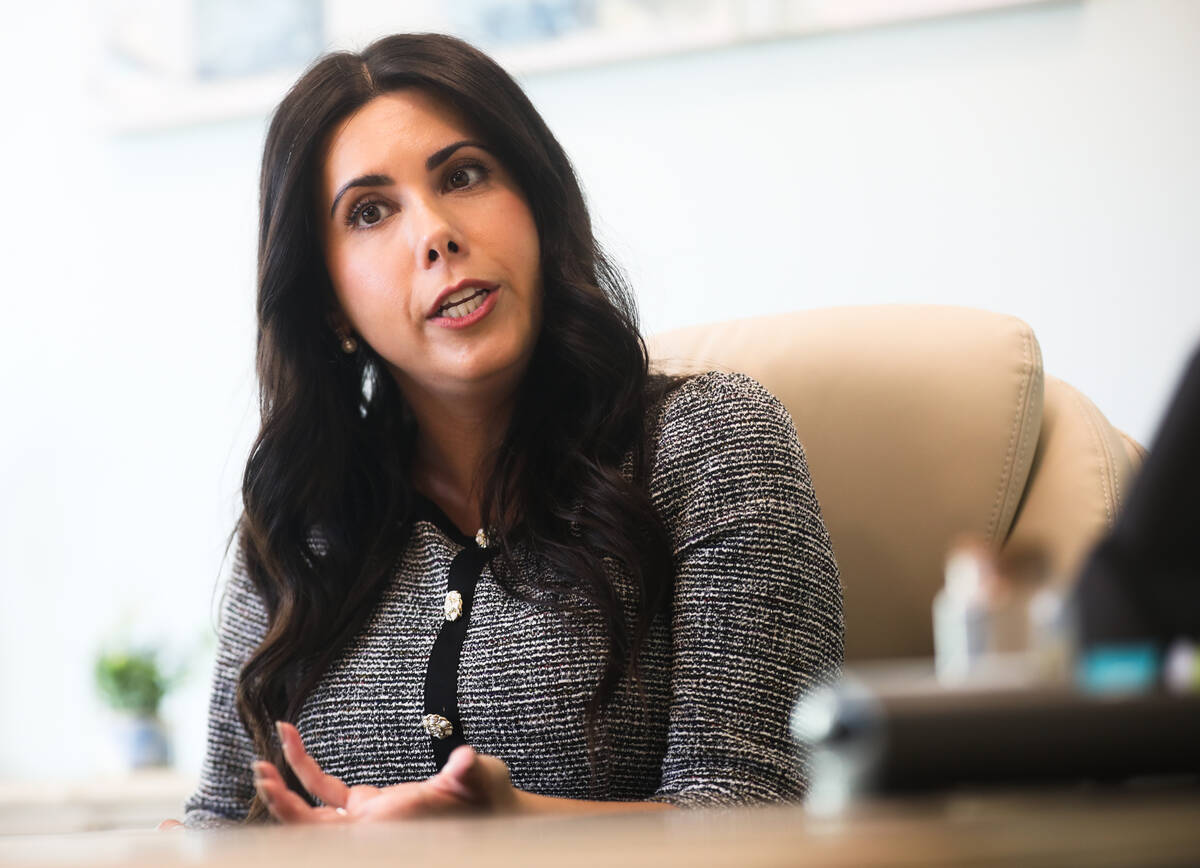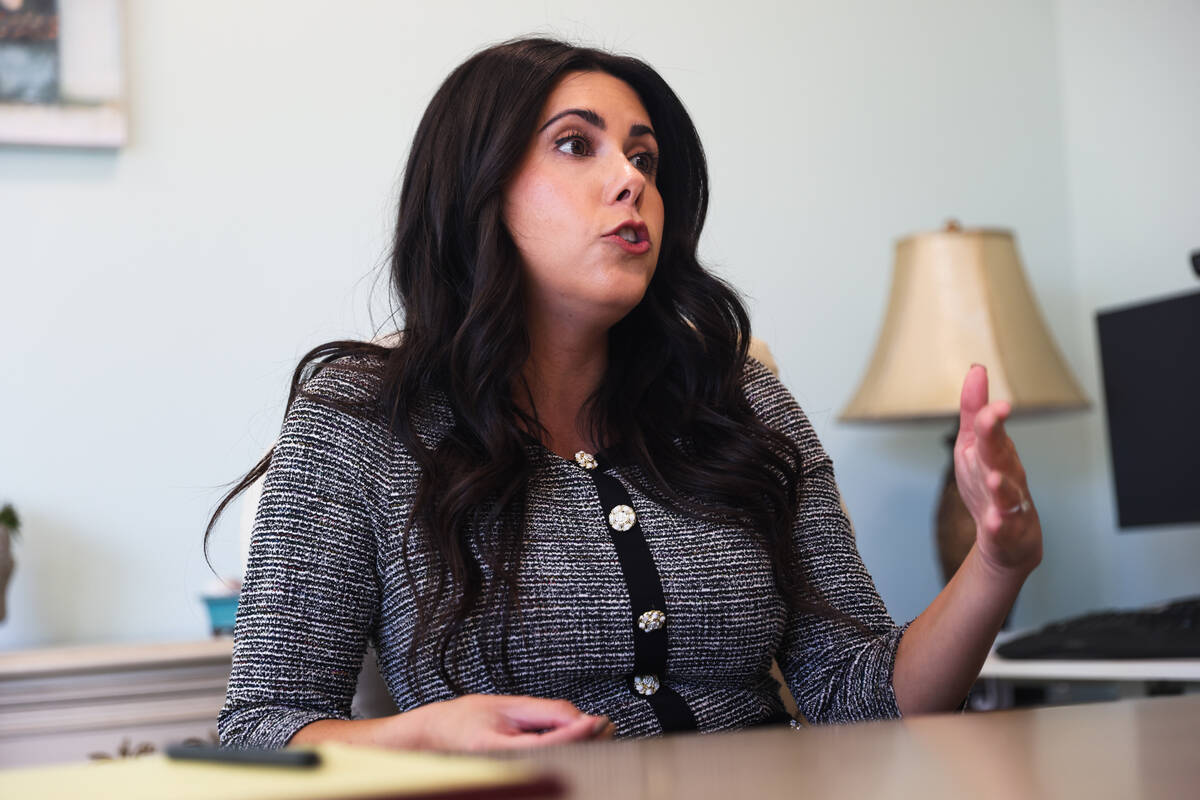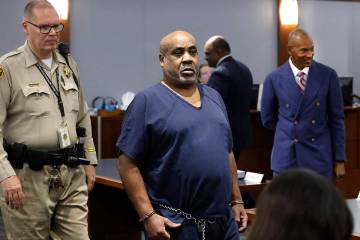‘We can’t ignore reality,’ judge says, as court launches mental health program
Justice of the Peace Nadia Wood believes Las Vegas is nearing a crisis when it comes to mental health.
“We can’t ignore the reality that mental health issues exist,” she said. “We have individuals living on our streets because they are suffering from mental illness, we have individuals who are in our criminal justice system because they’re suffering from mental illness.”
Starting next month, a new mental health court program in Las Vegas Justice Court is being set up to help address those problems in Clark County, by offering treatment to defendants with mental illness who have committed misdemeanors.
The new program aims to replicate the already existing mental health court in District Court, which provides treatment to people convicted of felonies, said Wood, who will oversee the justice court program alongside Justice of the Peace Eric Goodman.
The District Court program currently handles more 100 cases, but is only available for defendants who have plead guilty.
Striving for greater focus on treating mental illness
Wood said she wants the lower court program to treat people with mental illnesses in the criminal justice system before they potentially commit a more serious crime.
“We need to treat the mental illness, because if we don’t then we’ve just created a revolving door and a cycle,” Wood said in a recent interview with the Las Vegas Review-Journal. “We’re not helping people. We’re not helping the community. We’re not keeping the community safe until we’ve addressed these mental health issues and help get people to a place of stabilization.”
Participants are expected to spend one to two years in the lower court’s mental health program, either as part of their sentence or as a condition of informal probation, Wood said. If a defendant does not follow the program’s guidelines, their underlying jail or prison sentence could be imposed instead, similar to when someone violates probation.
Defendants will be offered “wrap-around services,” meaning case workers will set them up with providers that offer housing, medication management or counseling.
Wood said that helping participants get housing and apply for assistance or supplemental security income will also address homelessness in Clark County.
“I think everybody in the city is seeing it right now — our mentally ill individuals a lot of times are ending up unhoused,” Wood said.
Although the District Court’s mental health court was established in 2003, a statutory limitation prevented the lower court from creating its own program.
Nevada law previously allowed for the District Court to establish a mental health court, but the law was revised during the last legislative session, granting jurisdiction to justice courts and municipal courts to create similar programs.
‘Kind of a win, win, win’
District Judge Bita Yeager said she’s hopeful the new justice court program will alleviate some of the burden on her own program. Mental health courts have been shown to reduce recidivism rates, and are less costly in the long run than incarcerating someone in jail or prison, Yeager said.
“Overall it’s kind of a win, win, win,” she said. “It costs less, it’s great for community safety, and it also improves the participants who are in the program.”
Wood said the upcoming mental health court program would begin receiving applications on Jan. 2. She and Goodman will hold a mental health court calendar twice a week, and they anticipate starting the program with the ability to accommodate up to 50 people who need comprehensive care, plus additional defendants who have their own housing.
After 11 years with the Clark County public defender’s office before she was elected to the bench, Wood said she has seen firsthand how common serious mental illness is in the criminal justice system.
She repeated a statistic Nevada officials frequently cite: that the Clark County Detention Center is considered the largest mental health facility in Nevada, because it treats more individuals for mental illness than any individual facility.
“We are failing everybody when we do that,” Wood said. “It is not an efficient system to not be treating people on the front-end, and to only be providing them that mental health treatment once they are at the prison. Because that means we have allowed things to escalate. That is putting our community in danger. That is causing a greater burden on the taxpayers and it is making an individual be incarcerated when we could have gotten to them sooner and helped them sooner.”
Contact Katelyn Newberg at knewberg@reviewjournal.com or 702-383-0240.































